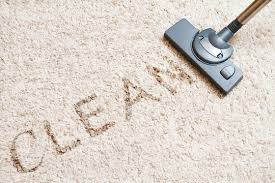Introduction:
Carpets are ubiquitous in homes, offices, and public spaces, offering warmth, comfort, and aesthetic appeal. However, beyond their visual and tactile benefits, carpets also play a significant role in influencing health and well-being. Hygienically clean carpets not only enhance the cleanliness of indoor spaces but also contribute to the overall health and well-being of occupants. In this article, we will explore the numerous advantages of maintaining carpets in a hygienically clean condition and how it can positively impact health and well-being.

- Reduction of Allergens:
One of the primary benefits of hygienically clean carpets is the reduction of allergens. Carpets can act as a reservoir for allergens such as dust mites, pet dander, pollen, and mold spores, which can exacerbate allergies and respiratory conditions. Regular vacuuming and professional cleaning help remove these allergens, preventing them from becoming airborne and causing allergic reactions. For individuals prone to allergies or asthma, clean carpets can significantly improve indoor air quality and reduce the frequency and severity of symptoms.
- Improvement of Indoor Air Quality:
Indoor air quality is a crucial factor in maintaining a healthy living environment. Carpets can trap airborne pollutants such as dust, dirt, and volatile organic compounds (VOCs), which can contribute to poor air quality. By regularly cleaning carpets, these pollutants are effectively removed, leading to improved indoor air quality. Cleaner air can have a range of health benefits, including reduced respiratory problems, fewer headaches, and enhanced cognitive function.
- Prevention of Mold and Mildew:
Moisture is a common enemy of carpets, as it can create an ideal environment for mold and mildew growth. Mold and mildew not only cause unpleasant odors but can also pose serious health risks, particularly for individuals with respiratory conditions or weakened immune systems. Proper cleaning techniques, including thorough drying and the use of antimicrobial agents, can help prevent mold and mildew growth, ensuring a hygienic environment and protecting occupants' health.
- Elimination of Bacteria and Germs:
Carpets can harbor a variety of bacteria and germs, including pathogens that can cause illness and infection. In high-traffic areas, such as offices and public spaces, the risk of bacterial contamination is particularly high. Professional cleaning with appropriate disinfectants can effectively kill bacteria and remove germs, reducing the spread of infectious diseases and promoting a healthier environment for all occupants.
- Odor Removal:
Over time, carpets can absorb and retain unpleasant odors from spills, pet accidents, and environmental pollutants. These odors not only affect the air quality but also create a negative impression of indoor spaces. Professional cleaning methods, such as steam cleaning and enzymatic treatments, can effectively remove embedded odors, leaving carpets smelling fresh and clean. A clean and odor-free environment enhances comfort and well-being, making indoor spaces more inviting and enjoyable.
- Prolonged Carpet Lifespan:
Regular maintenance and cleaning are essential for prolonging the lifespan of carpets. Accumulated dirt, debris, and stains can cause fiber degradation and discoloration, leading to premature wear and tear. By implementing a routine cleaning schedule and addressing spills and stains promptly, carpets can maintain their appearance and structural integrity for longer. This not only saves money on replacement costs but also ensures that carpets remain hygienic and visually appealing.
- Enhanced Mental Well-being:
The cleanliness and condition of indoor spaces can have a significant impact on mental well-being. Walking on clean carpets and enjoying a fresh-smelling environment can evoke feelings of comfort, relaxation, and satisfaction. Conversely, dirty or unkempt carpets can create feelings of stress, anxiety, and discomfort. By maintaining carpets in a hygienically clean condition, occupants can experience a greater sense of overall well-being and contentment in their living or working environment.
- Reduced Risk of Accidents:
Clean carpets are less likely to harbor tripping hazards such as loose fibers or debris. In households with young children, elderly individuals, or individuals with mobility issues, this can significantly reduce the risk of slips, trips, and falls. By keeping carpets clean and clutter-free, occupants can move around safely and confidently, minimizing the risk of accidents and injuries.
Conclusion:
In conclusion, the advantages of hygienically clean carpets extend far beyond mere aesthetics. Clean carpets contribute to improved health and well-being by reducing allergens, improving indoor air quality, preventing mold and mildew growth, eliminating bacteria and germs, removing odors, prolonging carpet lifespan, enhancing mental well-being, and reducing the risk of accidents. Implementing a regular cleaning and maintenance routine is essential for reaping these benefits and creating a healthier, more comfortable indoor environment for occupants. By prioritizing the cleanliness of carpets, individuals can enjoy the many advantages of hygienically clean carpets and promote overall health and well-being in their homes, offices, and public spaces.


No comments yet